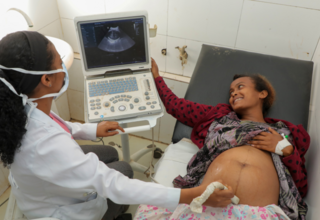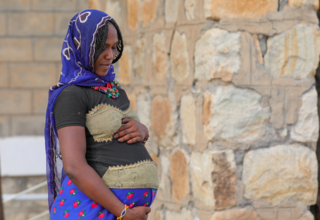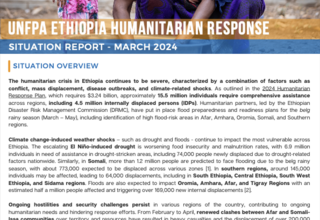You are here
UNFPA in Ethiopia
Key focus areas and achievements
UNFPA, the UN Sexual and Reproductive Health Agency, is working with the Government of Ethiopia and other partners including sister UN agencies to improve access to sexual and reproductive health and rights. It is working towards the elimination of harmful practices like child marriage and female genital mutilation, which keep girls out of school and is advocating for young people’s access to sexual and reproductive health and skills development. Equipping women and girls with the ability to choose the timing and number of their children through the provision of family planning information and services also helps them stay in school.
UNFPA is the lead UN agency in promoting sexual and reproductive health, including family planning, comprehensive sexuality education and maternal health services. UNFPA works with partners to strengthen health systems, including through the training of midwives, who – when properly trained – could avert two thirds of maternal and neonatal deaths.
UNFPA is also supporting the integration of HIV-prevention and treatment programmes into sexual and reproductive health care, so it is as readily available as possible.
UNFPA is working with partners to promote gender equality as well as investments in education and opportunities for young people. It supports policies and programmes that promote gender equality at all levels. UNFPA works closely with partners – including men and boys themselves – to fight gender-based violence.
UNFPA is working with partners and communities to advocate for policies that can help the country realize a demographic dividend. UNFPA believes earnestly that healthy, educated, employed and empowered young people improve not only their own prospects but the prospects of the country as well.
UNFPA also responds to the reproductive health needs of people caught in humanitarian situations. It provides access to dignity kits for disaster and conflict-affected communities – supplies that help women and girls maintain their health, hygiene and sense of dignity, even under dire circumstances.
UNFPA works to reach marginalized people and communities, especially those who have been left behind by economic growth and development. This includes vulnerable women and girls and those living with disabilities.
UNFPA is working with the Government to better understand how population dynamics affect the changing climate and how people can become resilience in the face of these changes. UNFPA plays a key role in supporting censuses, demographic and health surveys, and other large-scale data-gathering exercises, and provides technical support for the analysis and dissemination of the information generated.
We are the lead agency in coordinating resource mobilization for the undertaking of these exercises. In addition to the support provided to the preparation and analysis of censuses and other population-based surveys, a functional Integrated Management Information System (IMIS) is being established both at national and regional levels.



